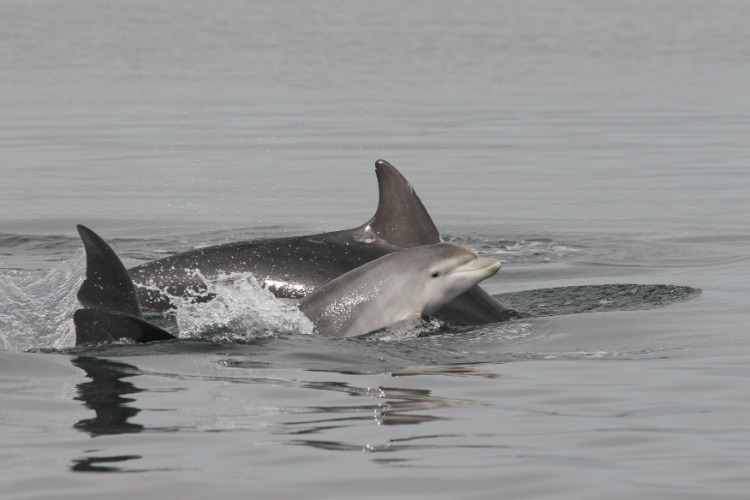
Dolphins are well known for their acoustic sense, being able to communicate over several kilometres underwater. Now researchers at the University of St Andrews have found that they also have a unique sense of taste that allows them to identify family and friends without seeing or hearing them.
Just like humans can detect other people's smells, dolphins are regularly exposed to the taste of other dolphins, mostly through urine and other excretions in their watery environment.
Professor Vincent Janik, Director of the Scottish Oceans Institute, and his colleagues, Jason Bruck and Sam Walmsley, tested how bottlenose dolphins react to urine samples from different individuals to study how much they know about their social partners.
Professor Janik explained: "Dolphins explored urine samples for longer if they came from known animals or when they were presented together with the dolphin's unique and distinctive signature whistle, an acoustic identifier that works like a name.
"This shows not only that they can tell animals apart by taste but also that they recognise animals across their senses, hinting at a complex representation of familiar animals in a dolphin's brain. While taste and smell are connected experiences for humans, dolphins have lost their sense of smell in their evolution and therefore could only use taste to solve the task set to them by the researchers.
Professor Janik, the senior author of the study and a world-renowned expert in acoustic communication and behaviour in marine mammals, added: "We still know very little about how the sense of taste works in dolphins. Other studies have shown that they lost a lot of the common tastes that we find in other mammals such as sour, sweet, umami or bitter. But they have unusual sensory cells on their tongue that are probably involved in this detection of individual tastes of other animals."
The study was carried out at the Dolphin Quest facilities in Bermuda and Hawaii where the animals live in natural sea water in their social groups. By training animals to give urine samples when needed, the scientists were able to create a collection that was used across facilities to present known and novel tastes to dolphins. As a next step, Professor Janik and his colleagues are trying to understand what else dolphins can extract from urine they encounter, possibly including information on diet or estrous cycle.
The paper 'Cross-modal perception of identity by sound and taste in bottlenose dolphins' is published in Science Advances and is available online: https://www.science.org/doi/10.1126/sciadv.abm7684
Caption: Researchers at the University of St Andrews have found dolphins' unique sense of taste allows them to identify familiar animals. Photo courtesy of Professor Vincent Janik, Scottish Oceans Institute, University of St Andrews.
Please ensure that the paper's DOI (https://www.science.org/doi/10.1126/sciadv.abm7684) is included in all online stories and social media posts.






